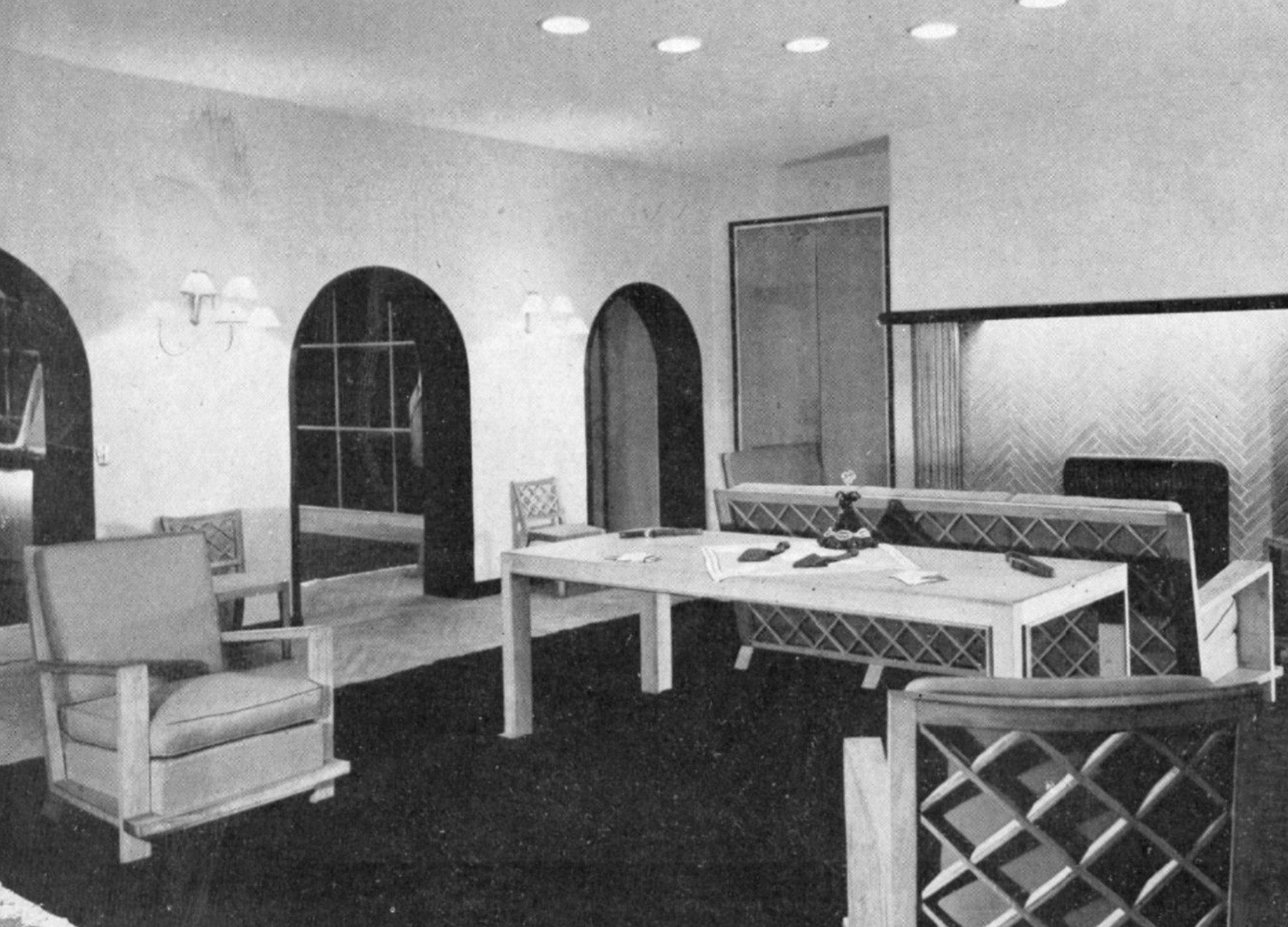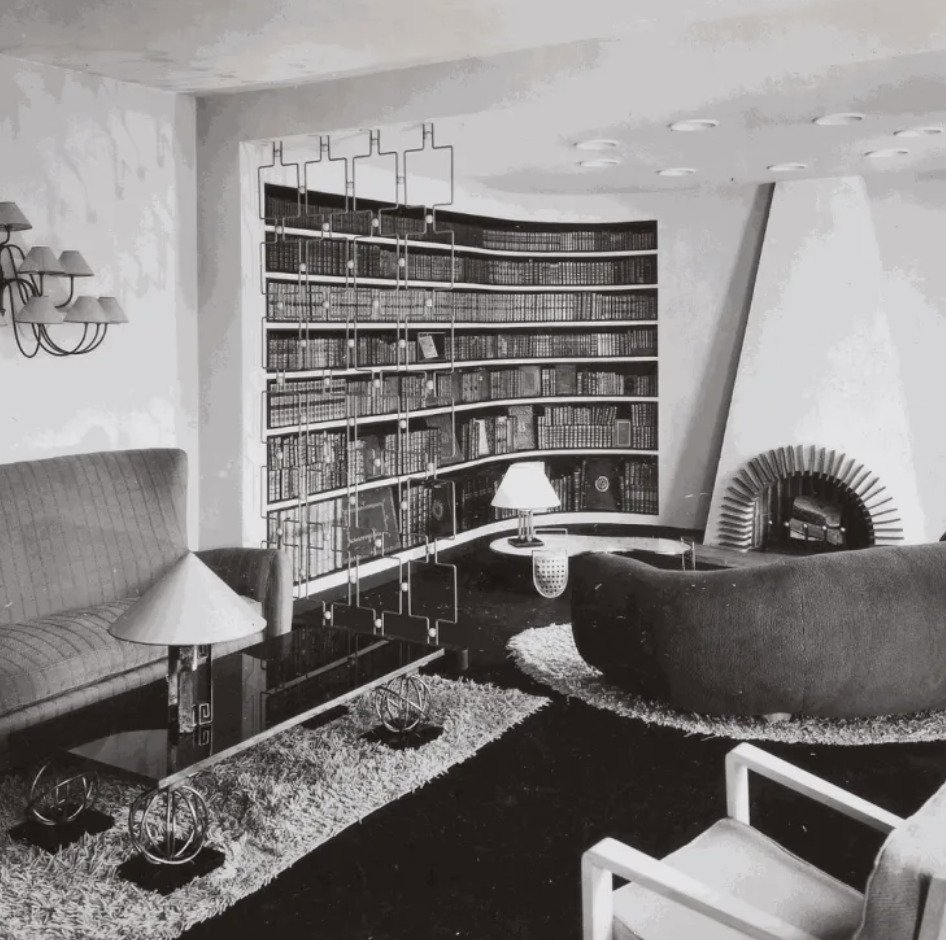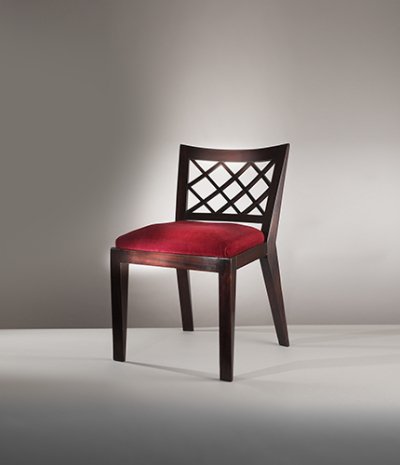Jean Royère
Jean Royère (1902–1981) was one of the most influential French designers and decorators of the 20th century. Coming from a distinguished family, he abandoned a promising career in international trade to dedicate himself to interior decoration, developing an innovative approach that combined traditional craftsmanship with modern design. He trained in the artisanal techniques of Faubourg Saint-Antoine in Paris, opened his own studio in 1942, and in 1949 inaugurated a gallery on rue du Faubourg Saint-Honoré, which became a landmark of French design.
Royère is celebrated for his unique style: organic, sensuous lines, bold and contrasting colors, furniture that is both functional and sculptural, and inventive use of materials such as wood, brass, glass, rattan, and leather. Rejecting the rigid functionalism of his era, he created a warm, almost poetic aesthetic, where each piece is conceived as a work of art.
Notable works include:
- Boule Sofa (Polar Bear): an iconic model with rounded, enveloping forms symbolizing his playful and inviting style.
- Éléphanteau Armchair: a small sculptural seat that combines comfort with elegance.
- Compass-Legged Sideboard: a subtle mix of functionality and formal refinement.
- “Rubis” Lamp Series: luminous pieces with a precious aesthetic, combining colored glass and metal.
- Luxury lounge and suite ensembles: prestigious commissions in the Middle East and North Africa, blending luxury, comfort, and modernity.
Royère attracted an elite international clientele, including heads of state and royalty, and established agencies in Beirut, Cairo, Lima, São Paulo, and Saint-Tropez. His influence extended far beyond France, and his pieces are highly sought after by collectors worldwide. Before his death in 1981, he entrusted his archives to the Musée des Arts Décoratifs in Paris, ensuring the preservation of his legacy and the transmission of his visionary approach to design.


